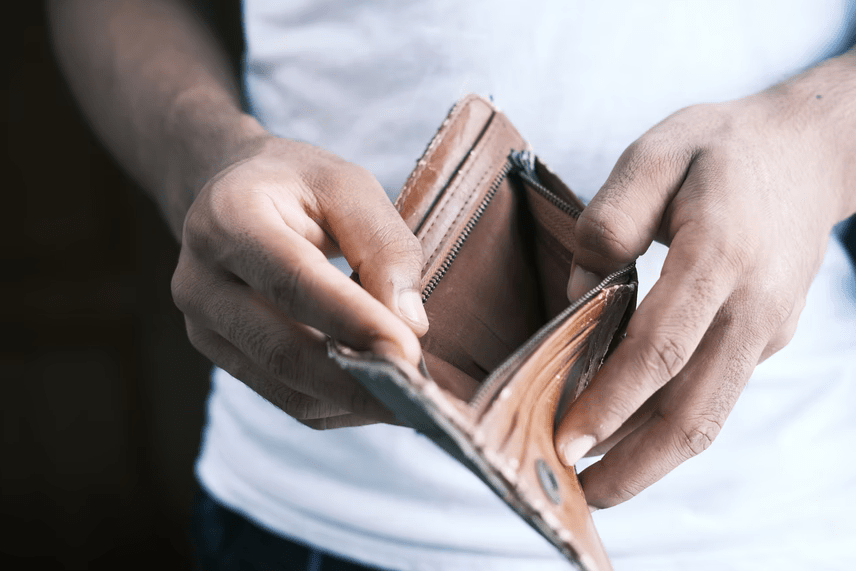Bankruptcy is the result of bad decisions, but it doesn’t have to be a disaster. A bankruptcy filing can provide you with relief from overwhelming debt and allow you to start over fresh.
But keep in mind: It isn’t an easy process and there are many things that you should know before filing for bankruptcy.
Things To Consider When Filing For Bankruptcy
Here are four important points to consider:
1) Take the time to understand your options
Before filing for bankruptcy, everyone should evaluate their circumstances carefully so they can determine if there is a better option than going through the bankruptcy process. Common alternatives include debt management plans, credit counseling, and settlement plans. Discuss your situation with a trained legal professional who can explain what options are available to you and help you evaluate each one thoroughly before making any big decisions. At Fight13 they say “When facing the uncertainty of debt, foreclosure, or a lawsuit [it is important that you]trust the experienced total debt solution law firm” to help you take care of your financial issues. If you are struggling with overwhelming debt, it’s important to understand the options available to help you get your finances under control.
2) Bankruptcy will affect your credit score – it can take years to repair it
If you are considering filing for bankruptcy, it’s important to know that there are lasting effects on your credit history and credit score following a bankruptcy. It typically takes at least 7-10 years before someone else may purchase items on your extended credit account with bad faith.
Credit reporting companies like Equifax, Experian, and TransUnion will likely list your bankruptcy filing if you file for Chapter 7 or 13. This information is often used by lenders to determine whether or not they are willing to lend money to an applicant based on their credit score. Filing bankruptcy may also affect your ability to obtain future financing including mortgages, car loans, or credit cards. Not only will you have to declare your bankruptcy filing with any new lender but you may need to wait at least 2-4 years before being eligible for new financing.
3) It can be difficult to get a job with bad credit
A bankruptcy filing will stay on your record for at least 10 years, which means you may have trouble getting approved for new loans or even finding a job if potential employers run your credit report. You shouldn’t lie about having filed bankruptcy when asked by an employer, but it’s best to avoid sharing this information until you are confident that they will hire you.
Keep in mind that if you are applying for a government job, you must disclose your bankruptcy immediately. Any applicant with a bankruptcy filing on their record is required to acknowledge this information when filling out applications.
4) Bankruptcy won’t erase your existing financial obligations – they will still need to be paid
Although bankruptcy may remove some of your debt, you will still be responsible for paying back other bills that aren’t included in the filing. For example, you will still owe money to your credit card companies and car lenders even after bankruptcy. It is possible that their interest rates or fees may be lowered, but they aren’t likely to just go away entirely. The amount of money that’s available through bankruptcy varies depending on your income and expenses. This means that you may be able to get out of debt, but it could take a long time.
Many people file for bankruptcy after medical emergencies or job loss. Bankruptcy won’t wipe away your medical bills and losses can’t be collected in most instances.
Filing Chapter 7 and Chapter 13 bankruptcy is designed for people whose income is low enough to qualify. The court will have the final say on whether or not you will receive a discharge – it is not automatic. Before you file, meet with an attorney who can explain the entire bankruptcy process to you and help you understand what options are available to you. Your attorney can represent your interests during your case and ensure that you receive the most effective outcome possible.
After you file, your card companies may close down your accounts and cancel outstanding balances because they don’t want to risk further losses by letting you continue to use your card(s).
What To Do Post-Bankruptcy
Filing for bankruptcy can make you feel like a failure. Still, it is essential to remember that there is life after bankruptcy. In fact, there are many steps you can take to get your life back on track even after declaring bankruptcy. Here are a few things you can do to get back on your feet.
Establish a Budget You Can Stick To
Bankruptcy has a negative effect on your credit card score, meaning you will need to do everything to get it back up. One way to do so is to establish a budget and stick to it. A budget helps you keep within your limits so that you do not spend more than you can afford to. Not only will a budget help you after you have gone bankrupt, but it will also help you manage your finances better in the coming times.
Open a Savings Account
Experts suggest that after filing for bankruptcy, you should open a savings account and save up a month’s worth of income. This will help you have a financial cushion in case you find yourself in financial hardship again or have an unexpected expense you cannot ignore. Having savings is always helpful as you never know when you may need extra cash to get you out of a situation.
Get a Secured Credit Card
Since having a good credit score is essential, you should ideally get a secured credit card and only use it for necessary expenses. It is vital that you do not spend more than you can pay off at the end of the month because that will negatively impact your credit score, making it more difficult for you to get a job.
Pay Your Rent and Bills on Time
Filing for bankruptcy does not mean that you don’t have to pay off your existing bills. Ensure you have paid off all your due bills, such as your rent, mortgage, etc. This will help better your credit score, which can be beneficial later on.
Conclusion
Bankruptcy is a decision that should be made after careful consideration. While it may provide immediate relief from debt, the long-term consequences of bankruptcy are often not worth the short-term benefits. Consider all your options before filing for bankruptcy and speak to an attorney or financial professional about how you can get out of debt with less drastic measures than declaring personal insolvency.



